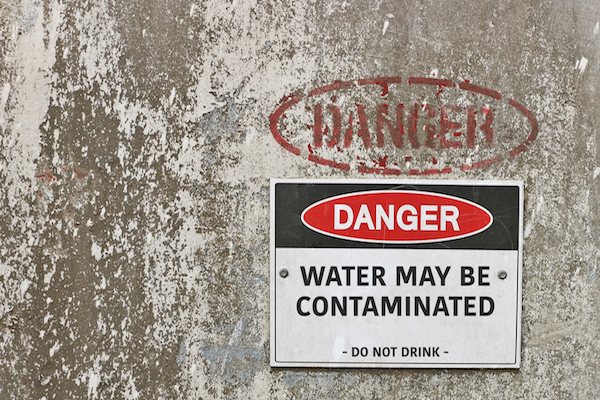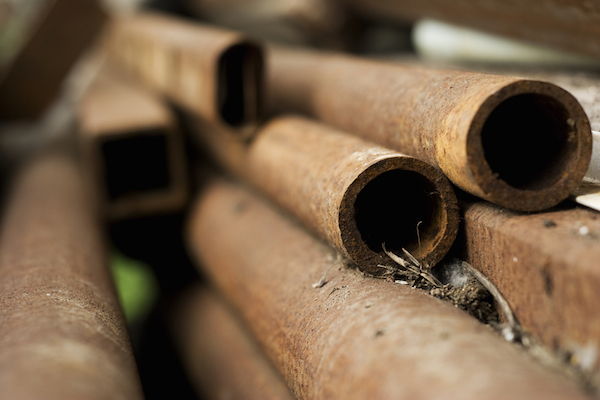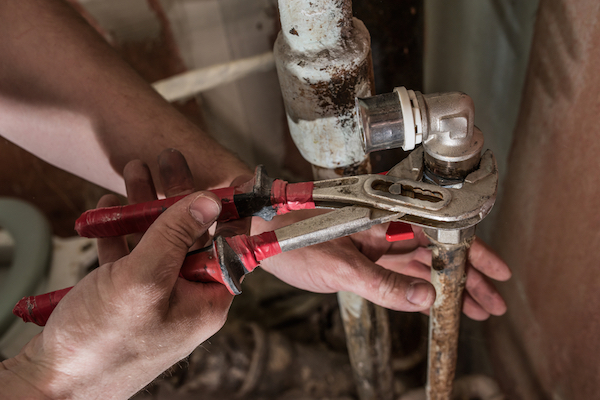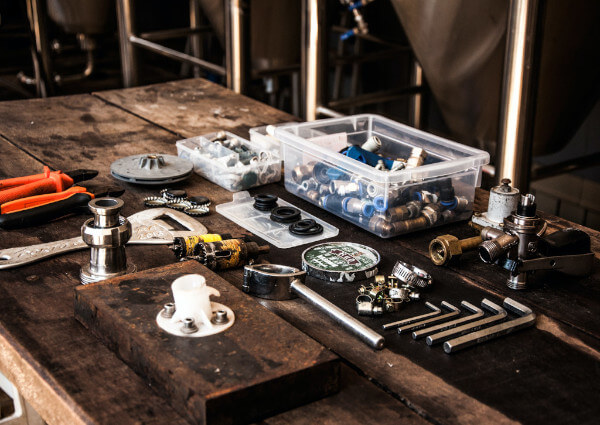
What to Do if Your Tap Has Rusty Water
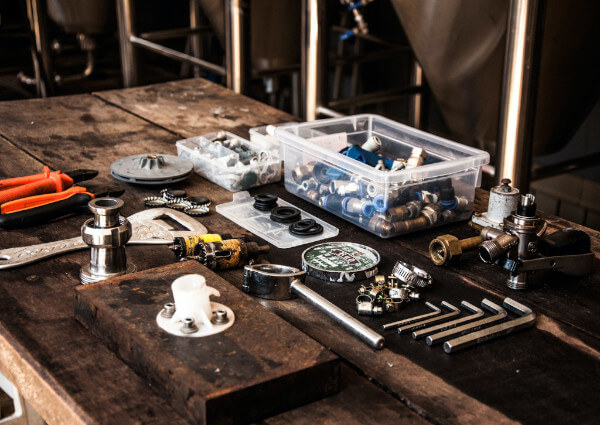
You just woke up and you’re about to brush your teeth. You stick your brush under the tap, turn the water on, and… a stream of brown, cloudy mush drizzles out. Rust colored water isn’t normally harmful but it can be disturbing. The causes can range from corroded pipes to mineral build up to utility company operations.
Seeing your home’s tap water turn rusty is a traumatizing experience, especially if you don’t know why it’s happening. That’s why we put together this primer to explain why your water is rusty looking. If the reason for your home water discoloration is rusty pipes, we’ll explain what you can do about it. We want all Los Angeles residents to have clean, safe drinking water in their homes.
What Makes Water Brown?
Tap water looks rusty brown, yellowish, or reddish when it contains an excess of sediment or minerals.
The most common discoloring minerals present in water are iron and manganese. Tiny metallic deposits of these minerals can get into the water stream via several different sources – natural or manmade. These minerals can also be responsible for any unpleasant tastes or smells your water might have.
Is Rusty Water Dangerous?
It depends on the particular minerals in your water, but probably not. The EPA regulates the treatment of drinking water contaminants according to primary and secondary standards. Dangerous contaminants like lead and arsenic are covered by the primary regulations. If these contaminants exceed a maximum contaminant level in a water supply, it (usually) isn’t supplied to the public.
The secondary EPA regulations cover contaminants like iron and manganese. These contaminants aren’t dangerous to health but taste, smell, or look bad and could stain clothing or cause skin rashes. Public water systems are compelled to test for primary contaminants on a regular basis but testing for secondary contaminants is unfortunately voluntary. Rusty water might be gross and inconvenient, but it’s not actually dangerous to drink or bathe in.
Why Is My Water Brown?
Any of the following symptoms could cause brown water from the faucets in your home. Diagnose your water problem using these three common scenarios:
If all your hot and cold water suddenly goes brown:
It may be the result of a nearby break in a city-operated water main or fire hydrant. Much of America’s plumbing infrastructure is outdated, so water main breaks that release sediment into the water supply happen frequently.
It’s also possible that either your water heater or your water supply pipes have become rusty or corroded, and you’re just now starting to see the effects.
If only your hot water is discolored:
Sediment or rust may have built up in your water heater’s tank.
If you get brown water from your cold tap and only certain faucets:
The problem is probably with a particular water supply pipe.
How To Fix Reddish Brown Water
Now that you have an idea of what caused your rusty water discoloration in the first place, you know where to start:
If all your hot and cold water suddenly goes brown:
Call your water supply company. Chances are, something happened to a water main or a nearby fire hydrant. It’s also possible that the city is conducting maintenance on the pipe system, and they inadvertently stirred up some sediment. They should be able to tell you when your water will clear up again and what they’re doing to fix the problem.
Once the utility work is done, run your taps for a few minutes until you no longer see orange water coming out of your faucets. Brown water in toilets should disappear after a couple of flushes refresh the water supply.
If all your hot water is discolored:
Try draining and flushing your water heater’s tank. Rusty hot water is often the result of sediment that’s built up over time. It’s a good idea to drain and flush your tank twice a year. Sediment buildup isn’t just bad for your water; it’s one of the most common causes of water heater leaks.
If you flush the tank or have a newer water heater and your hot water is still off-colored, you may have a more significant problem. Call a professional plumber to diagnose the issue. Too much sediment buildup could permanently damage your water heater, or (in rare and extreme circumstances) cause it to explode!
If your cold water is only discolored when it comes out of a few faucets:
Start by running those faucets at full pressure for about several minutes or until the water clears completely. Sometimes, a small amount of rust may dislodge from the inner walls of a pipe and enter the water supply. If the problem is that minor, simply running the water should clean out the rust and clear the water again.
If your water still looks rusty after running it, however, or if the problem returns shortly after you flush the rust, it may be because your pipes have corroded. When too much corrosion or rust builds up on the pipe walls of your home’s water supply pipes, then minerals will leach into your water constantly, and you will continue to have brown water from your cold tap.
If you have a corroded or rusted pipe, you should have it deep cleaned or replaced ASAP, before it causes even more serious problems. Corroded pipes can lead to clogs and possible leaks or breaks in your water line.
Get Rid of Brown Rusty Water in Your Home
If you’ve tried everything and remain frustrated by rusty water coming from your tap, remember that Mike Diamond has your back. Give us a call, and we’ll diagnose why your faucets are spewing out that ugly brown stuff and make sure your pipes are transporting clean, clear water to you and your family.
Nobody in Los Angeles should have to shower in–much less drink!–rusty water. We’ll make sure you never have to.
The post What to Do if Your Tap Has Rusty Water appeared first on Mike Diamond Services.
Did you miss our previous article…
https://plumber-tacoma.net/?p=338


